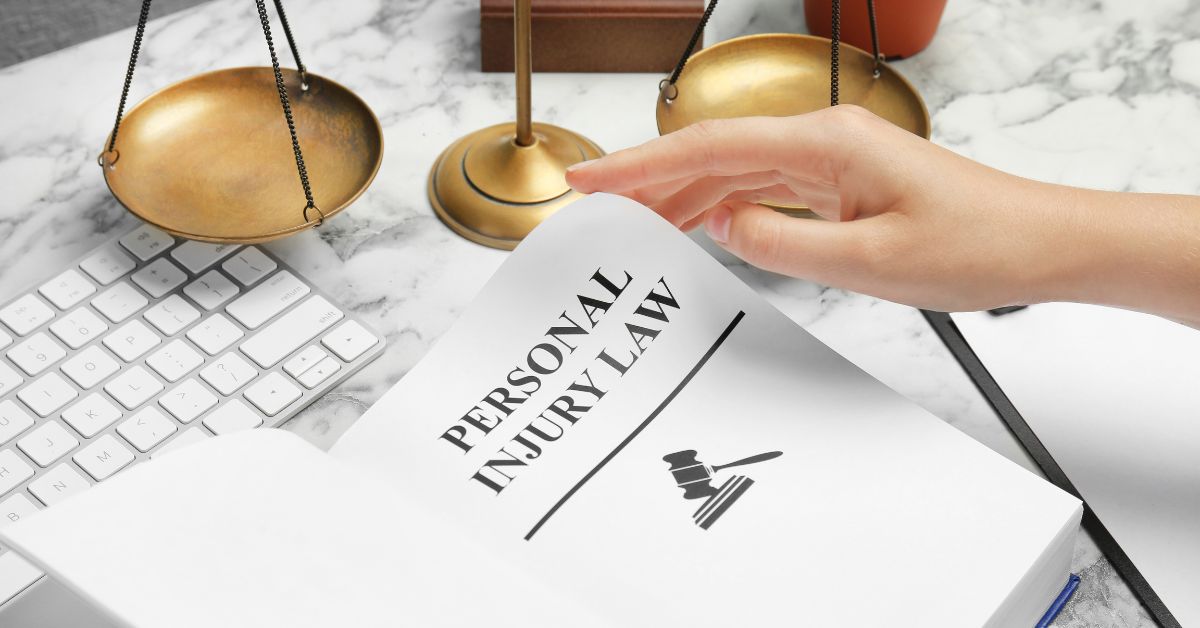Distinguishing Between Personal Injury Settlements, Verdicts, and Judgments

Navigating the aftermath of a personal injury can be daunting. Whether you’ve been involved in a car accident, suffered a slip and fall, or experienced any other type of injury due to someone else’s negligence, understanding the legal landscape is crucial. One of the key areas to grasp is the difference between personal injury settlements, verdicts, and judgments. These terms may seem interchangeable, but they represent distinct stages and outcomes in the legal process. In this comprehensive blog, we’ll explore these concepts in depth, shedding light on their implications and helping you make informed decisions.
Personal Injury Settlements
A personal injury settlement is an agreement reached between the injured party (plaintiff) and the party deemed responsible for the injury (defendant). This agreement typically involves the defendant, often through their insurance company, paying a specified amount of money to the plaintiff. In exchange, the plaintiff agrees to forgo further legal action related to the injury.
Process of a Personal Injury Settlement
The settlement process begins with negotiations between the plaintiff and the defendant. These negotiations can occur at any stage of a personal injury case, from before a lawsuit is filed to during the trial itself. Attorneys representing both parties usually handle these negotiations, aiming to reach a mutually acceptable resolution.
Role of Insurance Companies and Attorneys
Insurance companies often play a significant role in settlements, as they are usually responsible for paying the agreed-upon amount. Attorneys, like the ones at B|B Law Group, are crucial in advocating for their clients’ best interests, ensuring that the settlement offer is fair and adequately compensates for damages.
Benefits of Personal Injury Settlements
Time Efficiency and Cost-Effectiveness
Settling a case is generally quicker and less expensive than going to trial. Trials can be lengthy, involving numerous court appearances, witness testimonies, and legal fees.
Privacy and Confidentiality
Settlements are private agreements, meaning the details are not typically disclosed to the public. This can be beneficial for both parties, particularly if the case involves sensitive information.
Certainty and Control over the Outcome
Settlements offer a guaranteed resolution. Unlike a trial, where the outcome is uncertain, a settlement allows both parties to agree on terms they can live with.
Drawbacks of Personal Injury Settlements
Potentially Lower Compensation Compared to Verdicts
Plaintiffs might receive less money in a settlement than they could potentially win in a trial verdict. Defendants often negotiate to pay the minimum amount necessary to resolve the case.
No Admission of Fault by the Defendant
In most settlements, the defendant does not admit to any wrongdoing. For some plaintiffs, this lack of acknowledgment can be a drawback.
Personal Injury Verdicts
A verdict is the formal decision made by a judge or jury at the end of a trial. In personal injury cases, the verdict determines whether the defendant is liable for the plaintiff’s injuries and, if so, how much compensation the defendant must pay. This is much different than personal injury settlements.
Trial Process
The trial process is more complex and formal than settlement negotiations. It involves several stages, including discovery, pre-trial motions, and the trial itself.
Presentation of Evidence and Arguments
During the trial, both parties present evidence and arguments to support their case. This can include witness testimonies, expert reports, and physical evidence.
Role of the Judge and Jury:
In a jury trial, the jury evaluates the evidence and determines the verdict. In a bench trial, the judge performs this role. The judge also oversees the trial, ensuring legal procedures are followed.
Components of a Verdict
Liability Determination:
The jury or judge decides whether the defendant is liable for the plaintiff’s injuries based on the evidence presented.
Compensation Amount
If the defendant is found liable, the jury or judge determines the amount of compensation the plaintiff should receive. This includes both economic damages (e.g., medical expenses, lost wages) and non-economic damages (e.g., pain and suffering).
Benefits of Verdicts
- Potentially Higher Compensation: Plaintiffs might receive more money through a trial verdict than they would in a settlement. Juries can award substantial damages, especially in cases involving egregious conduct.
- Public Acknowledgment of Wrongdoing: A verdict can provide a sense of justice and validation for plaintiffs, as it publicly holds the defendant accountable.
Drawbacks of Verdicts
- Lengthy and Expensive Trial Process: Trials can be prolonged and costly, involving numerous court appearances, expert witnesses, and extensive legal fees.
- Uncertainty and Unpredictability of the Outcome: The trial’s outcome is uncertain. Even with strong evidence, there’s no guarantee the jury or judge will rule in the plaintiff’s favor.
Personal Injury Judgments
A judgment is the formal decision of the court regarding the outcome of the case. In personal injury cases, it reflects the court’s official ruling on the plaintiff’s claims and the compensation awarded.
Post-Verdict Process
After a verdict is reached, the judge issues a formal judgment. This judgment may confirm the jury’s decision or, in some cases, adjust the compensation amount.
- Judge’s Formal Ruling Based on the Verdict: The judge reviews the verdict and issues a formal judgment that specifies the amount the defendant must pay.
- Calculation and Formalization of Awarded Damages: The judgment details the exact compensation the plaintiff will receive, including interest and any applicable legal costs.
Types of Judgments
- Default Judgments: Issued when the defendant fails to respond to the lawsuit. In this case, the court may award the plaintiff the damages they requested.
- Summary Judgments: Granted when there is no dispute about the essential facts of the case, allowing the judge to decide the case without a trial.
Enforcement of Judgments
Once a judgment is issued, the plaintiff must collect the awarded damages. This can involve additional legal steps if the defendant does not voluntarily pay.
- Collection of Awarded Damages: Plaintiffs may need to take further action, such as garnishing wages or placing liens on the defendant’s property, to collect the compensation.
- Potential Challenges in Enforcement: Defendants may appeal the judgment or be unable to pay the awarded amount, complicating the collection process.
Benefits and Drawbacks
- Legal Finality and Enforceability: A judgment provides a legally binding resolution that can be enforced through various legal mechanisms.
- Possible Delays in Actual Recovery of Damages: Even with a judgment, collecting the awarded damages can take time, especially if the defendant appeals or lacks the financial resources to pay.
Key Differences and Practical Implications
Comparative Analysis
Speed and Cost
Settlements are generally quicker and less costly than trials, which can drag on for months or even years and involve significant legal expenses.
Certainty and Predictability
Settlements offer more certainty, as both parties agree on the outcome. Trials and subsequent judgments carry uncertainty, with outcomes that can be difficult to predict.
Privacy vs. Public Record
Settlements are private, while trials and judgments are public records. This difference can be crucial for parties concerned about confidentiality.
Strategic Considerations for Claimants
When to Pursue a Settlement vs. a Trial
Deciding between settling and going to trial involves considering the strength of the case, potential compensation, and the willingness of both parties to reach an agreement.
Understanding the Likelihood of Different Outcomes
Consulting with an experienced attorney can help claimants assess their chances of success in a trial versus the potential benefits of a settlement.
Legal Guidance
Importance of Consulting with Experienced Personal Injury Attorneys
Legal professionals provide invaluable advice, helping claimants navigate complex legal processes and make informed decisions.
Role of Legal Advice in Decision-Making
Attorneys can evaluate the merits of a case, negotiate settlements, and represent clients effectively in court, ensuring the best possible outcome.
Understanding the Distinctions between Personal Injury Settlements, Verdicts and Judgements
Understanding the distinctions between personal injury settlements, verdicts, and judgments is essential for anyone involved in a personal injury case. Each path offers different benefits and challenges, and the right choice depends on the specifics of the case and the parties involved. Settlements provide a quicker, more private resolution, while verdicts and judgments offer the potential for higher compensation and public acknowledgment of wrongdoing. However, the latter comes with increased costs, time, and uncertainty.
Ultimately, the best way to navigate these complexities is to seek the guidance of an experienced personal injury attorney. At B|B Law Group, we are committed to helping our clients understand their options and achieve the best possible outcomes. If you or a loved one has been injured, contact us today for a consultation. Our team is here to support you every step of the way, ensuring you receive the compensation and justice you deserve.
Contact B|B Law Group Today
If you have any questions about personal injury settlements or cases. Or, need legal assistance, don’t hesitate to reach out to B|B Law Group. Contact us today for a consultation and let us help you navigate your personal injury claim with confidence and expertise.


